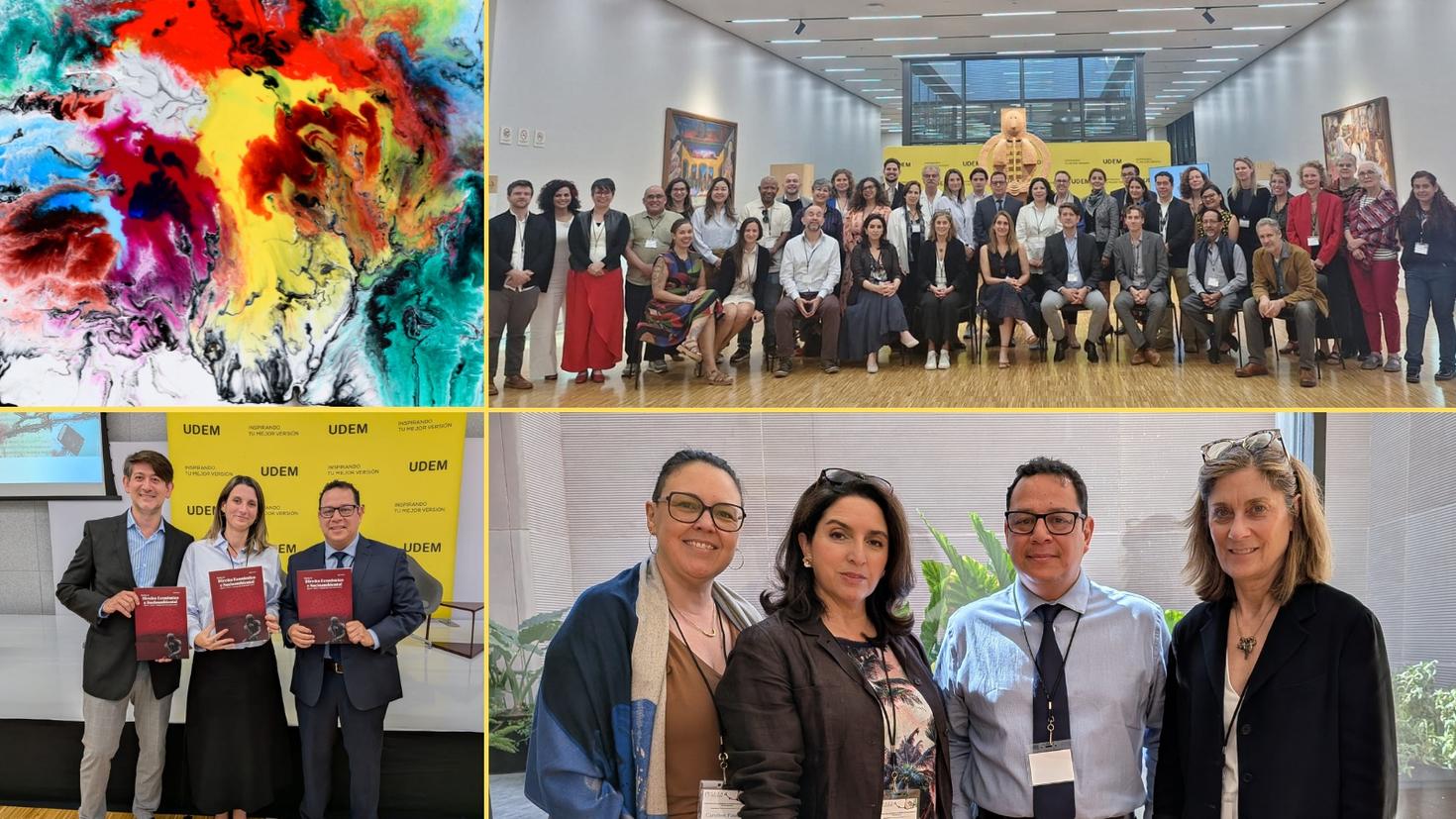The conference, co-hosted by the CAFA, the Universidad de Monterrey (UDEM), the Scholars at Risk (SAR) Network, and HRREC, representing the University of Ottawa, brought together leading human rights practitioners, scholars, and advocates. In a context marked by rising authoritarianism, deepening polarization, and the spread of disinformation, the conference emphasized the vital role of universities as spaces for critical inquiry, democratic participation, and the pursuit of truth. Participants explored the real-world impacts of threats to academic freedom, legal and policy frameworks, and the effects of anti-science sentiment on research and public discourse.
HRREC member and CAFA legal advisor, Salvador Herencia-Carrasco, HRREC Director Penelope Simons, Associate Director Viviana Fernandez and Communications Specialist Caroline Faucher played roles in organizing the conference. Some of them also contributed to various panels and discussions.
The conference began with a keynote presentation by Margarita Ríos Farjat, former Justice of the Supreme Court of Justice of Mexico who said, “the struggle for academic freedom must be constant, with the hope that it becomes a daily effort.” Viviana Fernandez moderated the first panel, which focused on the repercussions of attacks on academic freedom and shared protection strategies from El Salvador, Ecuador, the United States, and Argentina. Salvador Herencia-Carrasco moderated the second panel, which introduced a legislative overview of academic freedom across the Americas. This included the presentation by Vannie Lau, of a study on the Canadian landscape led by the International Justice and Human Rights Clinic (IJHR Clinic) at the Peter A. Allard School of Law at the University of British Columbia (UBC), which has been supported by HRREC since its inception. Panelists also discussed science denialism as well as civic and democratic responses to threats against academic freedom.
The final segment featured the presentation of the 2025 Free to Think report issued by SAR. This was followed by the launch of a special edition of the Revista Brasileira de Direito Econômico e Socioambiental, co-edited by Salvador Herencia-Carrasco, Danielle Pampolona (Pontifical Catholic University of Paraná), and Rafael Ibarra Garza (University of Monterrey). The publication includes multilingual contributions that explore academic freedom in Latin America, indigenous education, science denialism, and the limits of academic freedom. Theses contribution were presented at the 2023 and 2024 CAFA Conferences.
In addition to the public conference, CAFA convened participants of three working groups created this year to plan activities for 2026 and 2027: Legal, Monitoring and Gender. HRREC members are leading the first two groups and also participate in them.
Our Centre was honoured to reconnect with longstanding partners and welcome new voices, including Elthon Rivera Cruz from Nicaragua. He is the president and cofounder of the Iniciativa Puentes pro los Estudiantes de Nicaragua (IPEN) and joined in person for the first time since becoming a CAFA member. The conference reaffirmed the importance of solidarity, advocacy, and collaborative action in defending academic freedom throughout the Americas.
